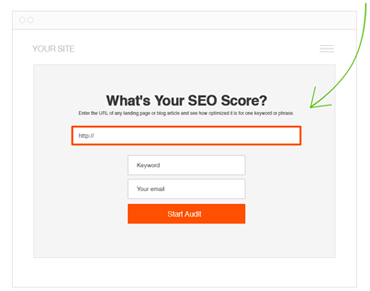Keyword Limit for SEO
Keywords are an essential part of any SEO strategy, as they help search engines understand the content of a webpage and how relevant it is to a particular search query. However, a fine line exists between using keywords effectively and overdoing them. This blog post will explore how many keywords are too many for SEO.
The Importance of Keywords in SEO
Before we dive into how many keywords are too many, let’s first understand the importance of keywords in SEO. Keywords are the words or phrases people use to search for information online. Optimizing your website for specific keywords increases your chances of ranking higher in search engine results pages (SERPs) when someone searches for those keywords.
However, simply stuffing your content with as many keywords as possible is not a good SEO strategy. Search engines have become much more intelligent in recent years and can easily detect keyword stuffing. This can result in penalties that harm your website’s rankings and visibility in search results.
So, How Many Keywords Should You Use?
The answer to this question is not straightforward, as no set number of keywords is ideal for all websites. The number of keywords you should use depends on several factors, including:
The Length of Your Content
Longer content allows you to use more keywords naturally without sounding spammy. For example, if you are writing a blog post that is 2,000 words long, you can comfortably use 10-20 keywords without worrying about overdoing it. On the other hand, if you are writing a short 500-word article, using more than three or four keywords might be too much.
The Type of Content
Different types of content have different keyword requirements. For example, product descriptions typically require fewer keywords than blog posts because they focus on specific products and their features. On the other hand, a comprehensive guide on a topic might require more keywords to cover all aspects of the subject matter.
The Purpose of Your Content
The purpose of your content also determines how many keywords you should use. For example, if you aim to inform and educate your audience, you can use more keywords to provide comprehensive information. However, if you aim to persuade your audience to take a specific action, using too many keywords can make your content appear spammy and harm your conversion rates.
Keyword Relevance
Finally, the relevance of your keywords to your content is crucial. Using irrelevant keywords can harm your rankings and make your content appear spammy. Therefore, using relevant keywords for your content and providing value to your audience is essential.
Best Practices for Keyword Usage
Now that you understand how many keywords you should use in your content let’s discuss some best practices for keyword usage.
Use Keywords Naturally
Keywords should be used naturally in your content. Avoid stuffing your content with too many keywords, as this can harm your rankings and make your content appear spammy.
Use Relevant Keywords
Use relevant keywords to your content and provide value to your audience. Avoid using irrelevant keywords, which can harm your rankings and make your content appear spammy.
Focus on User Experience
The user experience should be your top priority when creating content. Ensure that your content is informative, engaging, and easy to read. Avoid sacrificing the user experience in favor of using more keywords.
Monitor Keyword Density
Keyword density refers to the number of times a keyword appears in your content compared to the total number of words. While no set keyword density is ideal, aim for a density of around 1-3% to avoid overusing keywords.
Use Keyword Variations
Using keyword variations can help you avoid using the same keyword repeatedly in your content. This can help you avoid using the same keyword repeatedly in your content. This can make your content more natural and engaging for your audience.
Tips for using keyword variations
1. Use synonyms: Instead of using the same keyword repeatedly, use synonyms that convey the same meaning. For example, instead of using the keyword “SEO strategy” repeatedly, you can use variations such as “search engine optimization strategy” or “online marketing strategy.”
2. Use long-tail keywords: Long-tail keywords are longer and more specific phrases that contain multiple keywords. For example, instead of using the broad keyword “car insurance,” you can use long-tail variations such as “affordable car insurance for young drivers” or “best car insurance for high-risk drivers.”
3. Use related keywords: Use related keywords that are relevant to your content. For example, if your content is about “SEO tips,” you can use related keywords such as “SEO best practices,” “SEO techniques,” or “SEO tools.”
4. Use keyword variations in headings and subheadings: Use keyword variations in your headings and subheadings to make your content more readable and engaging. This can also help search engines understand the content of your page better.
5. Use keyword variations in anchor text: Anchor text is the clickable text that appears in a hyperlink. Use keyword variations in your anchor text to make your links more natural and relevant to your content.
In Conclusion
Using keyword variations can help avoid overusing keywords and make your content more engaging and natural for your audience. Remember to use relevant variations that provide value to your audience and avoid stuffing your content with too many keywords.
 April 22, 2023
April 22, 2023


